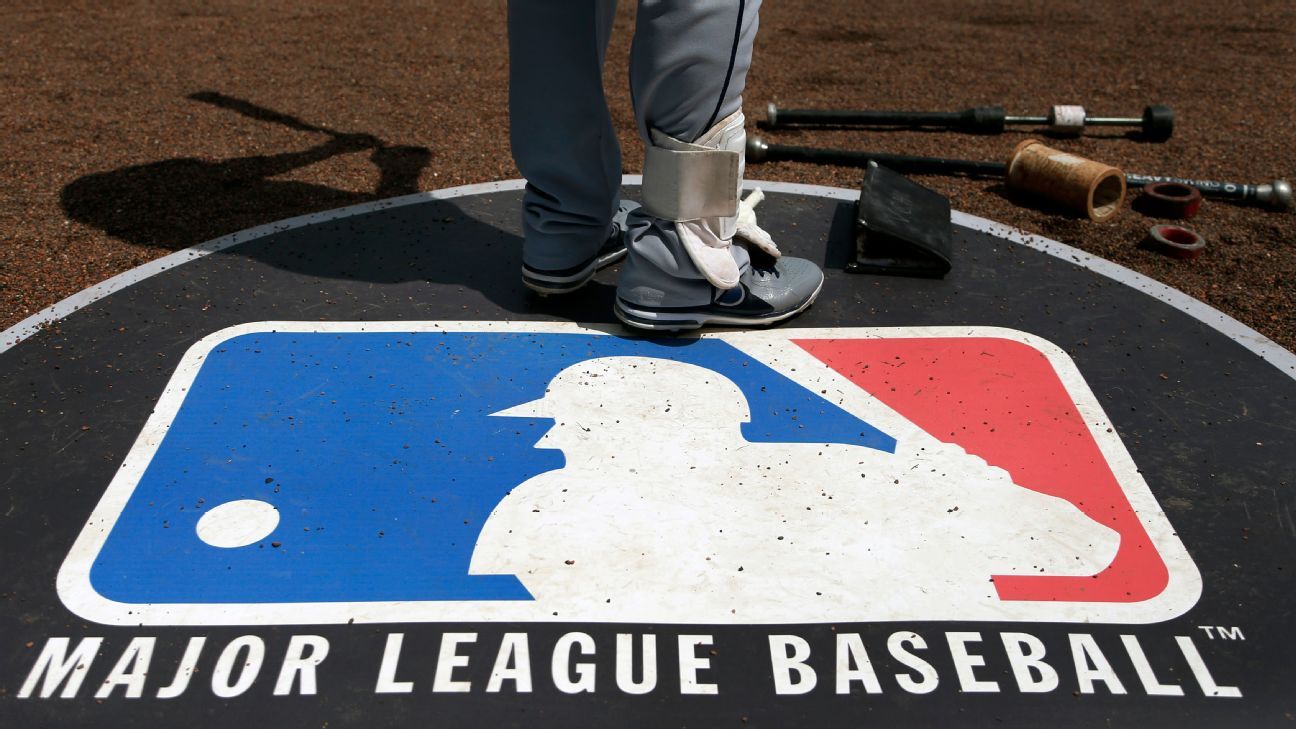Major League Baseball and the MLB Players Association reached a tentative agreement on a new collective-bargaining agreement Thursday, ending the league’s 99-day lockout of the players and salvaging a 162-game season, sources familiar with the situation told ESPN.
With the end of the second-longest work stoppage in the game’s history, spring training camps will open Sunday, free-agent signings can begin Thursday night, and baseball will attempt to return to some semblance of normalcy after months of fraught negotiations.
The deal materialized after talks ratcheted up this week, when the league made a proposal that bridged the significant gap in the competitive-balance tax, a key issue in the end stages of talks. A dispute over an international draft threatened negotiations and caused the league to “remove from the schedule” another two series Wednesday, but those issues were resolved Thursday morning and the league delivered a full proposal to the union, which it voted to accept.
The final vote by the MLBPA’s eight members of the executive subcommittee and 30 player reps was 26-12 in favor of the agreement, sources told ESPN.
The basic agreement governs almost all aspects of the game, but baseball’s core economics were front and center in the labor talks. In addition to the CBT move, the minimum salary governing players with less than three years of major league service will jump from $570,500 to $700,000, growing to $780,000, and a bonus pool worth $50 million will be distributed among those younger players who have yet to reach salary arbitration.
MLB had pushed for expanding the postseason to 12 teams — a plan to which the MLBPA agreed. Additionally, player uniforms will feature advertising for the first time, with patches on jerseys and decals on batting helmets.
Other elements of the deal include:
• A 45-day window for MLB to implement rules changes — among them a pitch clock, ban on shifts and larger bases in the 2023 season
• The National League adopting the designated hitter
• A draft lottery implemented with the intent of discouraging tanking
• Draft-pick inducements to discourage service-time manipulation
• Limiting the number of times a player can be optioned to the minor leagues in one season
Talks on a new basic agreement began last year and moved slowly leading up to the Dec. 1 expiration of its previous version. The league and union made little progress in the months prior, and commissioner Rob Manfred locked out the players just past midnight Dec. 2. A 43-day gap in negotiations ensued, and by the time the scheduled opening of spring training in mid-February rolled around, the gaps between the parties were significant enough that the possibility of losing regular-season games grew stronger.
Manfred’s cancellation of Opening Day a week ago roiled players, who, after a 2016 negotiation that led to drastic economic consequences, were intent on making significant financial gains beyond 2022. Player salaries have dropped over the past four seasons despite growing revenues that topped out at an estimated $10.7 billion in 2019. The significant rise in franchise values — which have almost quadrupled over the last two basic agreements — became a rallying cry for players.
At the same time, the league, content with the current economic system, pushed back on the massive gains players hoped to reap. Giving on the front end of the CBT allowed it to push for smaller year-over-year raises, and while the guarantees for younger players amounted to around $100 million, the game’s uncapped system allows teams to spend less on older players to balance out the added costs.
In the end, baseball, a game still searching for resonance in an entertainment and sporting world with endless viewing options, wound up avoiding the doomsday scenario of a protracted work stoppage that wipes out a large chunk of the season. Now comes a frenzied free-agent period that will see star shortstop Carlos Correa, first baseman Freddie Freeman, shortstop Trevor Story, pitcher Clayton Kershaw, third baseman Kris Bryant and others sign. The Oakland A’s could trade first baseman Matt Olson, third baseman Matt Chapman and a number of starting pitchers.
And while a March 31 Opening Day won’t happen, baseball will return in early April hoping for five years of labor peace, five years of prosperity and five years to erase the ugliness of this winter.
